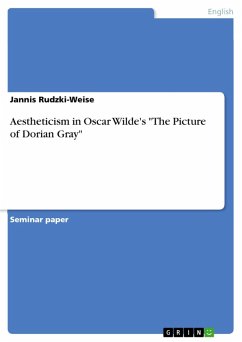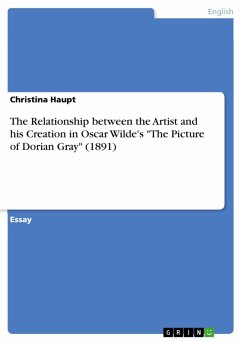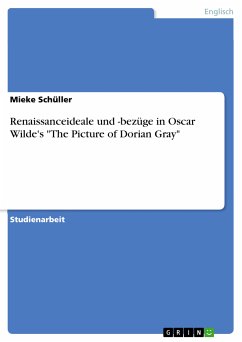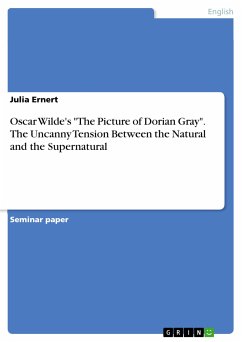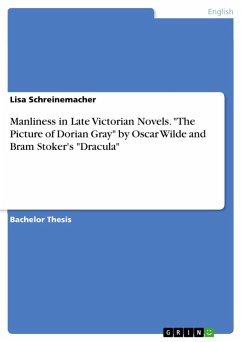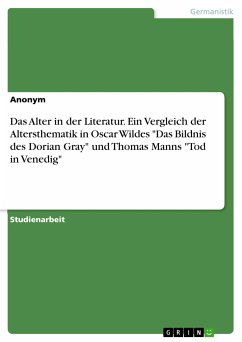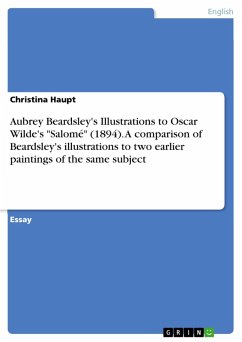Seminar paper from the year 2010 in the subject American Studies - Literature, grade: 2.0, University of Kassel, course: Anglo-American Literature, language: English, abstract: Oscar Wilde's only novel, The Picture of Dorian Gray, can be considered a revolutionary piece of literature not only because it broke out of the traditional value and belief pattern of the Victorian society but also because it replaced the traditional pattern with new concepts coined by Wilde and his former tutors. Several themes such as homoeroticism, an aesthetic lifestyle or influence and corruption, were issues that many had been afraid to address in the time before Wilde. In this research paper, I will place my main focus on the matter of aestheticism, the causes that it has and the consequences that result from an aesthetic lifestyle. In order to analyze these aspects, it is inevitable to have a closer look at Oscar Wilde's beliefs about art and morality which serve as a basis for understanding the main character's behavior in the novel. To begin my paper, I will outline Wilde's thoughts on art and aestheticism as presented in his famous selection, Intentions, which consists of a number of essays and dialogues on aesthetics as well as his preface to The Picture of Dorian Gray that has been regarded as Wilde's personal praise of aestheticism. This background information is essential to understanding the main character's motivations in the story, which can often be related to Wilde's life as an artist. I will then make a detailed analysis of the characters Basil Hallward, Lord Henry Wotton, Sibyl Vane and Dorian Gray and will explain how their aesthetic behavior and their moral beliefs can be linked to Wilde's thoughts. To end, I will attempt to summarize my findings referring to the statement that Wilde also included criticism of aestheticism in his novel. The term 'aestheticism' derives from Greek, meaning "perceiving through senses" and is a nineteenth-century European concept that rejects the moral rules and conventions of Victorian society, and focuses instead on beauty and the resulting pleasure in life. Since it is hard to nail down 'aestheticism' to one definition and since it has different meanings to different people, I will take a closer look at Oscar Wilde's thoughts about this concept, in order to better understand the correlation between this idea, and The Picture of Dorian Gray. When it was first published in Lippincott's Monthly Magazine on 20 June 1890, The Picture of Dorian Gray was attacked fiercely as it suggested a new set of moral beliefs.
Dieser Download kann aus rechtlichen Gründen nur mit Rechnungsadresse in A, B, BG, CY, CZ, D, DK, EW, E, FIN, F, GR, HR, H, IRL, I, LT, L, LR, M, NL, PL, P, R, S, SLO, SK ausgeliefert werden.

